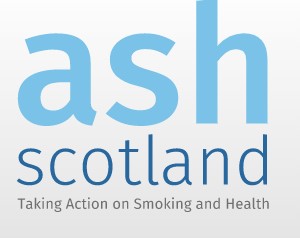
Smoking is the biggest cause of preventable ill health and death in Scotland. It results in up to 100,000 hospitalisations, and more than 9,000 premature deaths each year – that’s more than alcohol, suicide, drugs, and road accidents combined.
Figures show that people living in our most deprived areas are considerably more likely to smoke than those in our wealthiest areas – and they experience more harm from it.
One in three (32%) people living in Scotland’s most disadvantaged communities smoke compared to just one in ten (6%) people living in the most affluent areas. Smoking rates are also disproportionately higher amongst people with mental health issues and other vulnerable groups, such as those who are permanently sick or disabled. The harm caused by tobacco is a major factor in the life expectancy gap between those living in the most and least deprived areas
The relationship between smoking and poverty is complex. Addiction is not a lifestyle choice, it’s a public health concern and a social justice issue. People experiencing poverty are more likely to be subject to stresses and less likely to have access to alternative coping mechanisms, resources and sources of support, but they’re just a likely to want to quit as anyone else. It’s important to understand that having fewer protective factors to offset the negative impact of mental and physical health challenges, including financial stress, can increase people’s smoking and reduce the chance of quitting successfully.
In a bid to address the health inequalities gap, ASH Scotland’s engagement team have been piloting a new project, ‘Engaging communities towards being smoke-free’ and supporting community groups to respond to the impact of smoking in areas of high deprivation.
Community organisations are well placed to support people to improve their mental, physical and financial wellbeing, and ASH Scotland works alongside local partners to address smoking in a compassionate and supportive way. We do this by delivering training, and working collaboratively to respond to the impact smoking has in these communities. This includes encouraging people working with communities to take our new eLearning module on our website, ‘Smoking in Scotland’s areas of high deprivation’.
As well as the more obvious health concerns, tobacco use also causes significant financial harms, both to household budgets and the wider economy. For example, smoking costs an estimated £500 million to be spent by NHS Scotland to treat smoking-related diseases – that’s the equivalent of more than 16,700 nurses’ salaries.
If the smoking rate in the 20% most deprived areas of Scotland fell just 1%, people in those communities would save an accumulation of around £16 million a year in tobacco costs.
Looking forward, Scotland has an ambitious ‘endgame’ target of achieving a tobacco-free generation by 2034 – meaning that adult smoking rates should be 5% or less. The vast majority of people who smoke want to quit and, as part of our project, we are signposting those who want to stop to NHS “Quit Your Way” services, where they can access free expert support. With person-centred advice and support, the chances of quitting smoking are vastly improved.
We are also working closely with local partners who have an interest in ending poverty and reducing inequalities, such as Pilton Community Health Project, Dean and Cauvin Young People’s Trust and Paisley Shopmobility to name but a few. Many of the organisations we are working with have benefited from one of our small grants, which includes a package of tailored support to address smoking.
ASH Scotland is continuing to tackle tobacco head-on by playing a leading part in helping particularly vulnerable groups in society to reduce the harms and health inequalities caused by smoking. Community groups and charities can visit www.ashscotland.org.uk/inequalities or email.
Lisa Brown is the Communications and Information Officer at ASH Scotland

